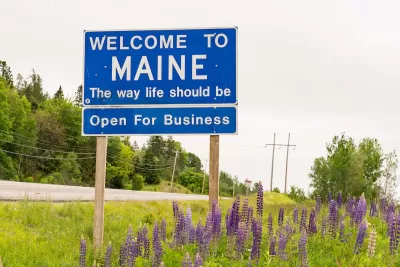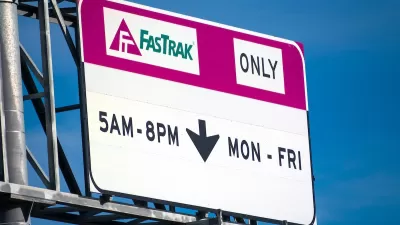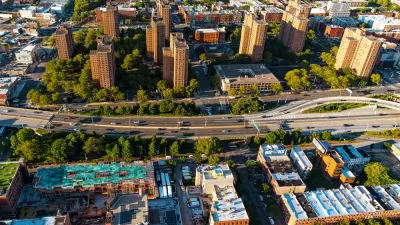State transportation officials say a proposed road expansion project would reduce congestion — if coupled with transit initiatives.

Maine transportation advocates are calling on state officials to reject a highway expansion proposal that state transportation officials claim would reduce carbon emissions, reports Annie Ropeik for Energy News. “The toll road aims to offer a more direct route from Portland’s growing suburbs into the city, bypassing local roads that officials say weren’t designed to accommodate increasing commuter traffic.” A Maine Turnpike Authority (MTA) spokesperson say the Gorham Connector project is part of “a multi-pronged approach” that also includes land use and transit initiatives.
According to Benito Pérez, the policy director of the nonprofit Transportation for America, any emissions reduction benefits are ‘negligible.’ “Pérez pointed to examples in the Washington, D.C. area, Salt Lake City and elsewhere where highway expansions that aimed to reduce gridlock instead led to more traffic and further need for expansions years later — a paradox known as ‘induced demand.’”
A 2012 study recommended the project in addition to changes to roads, transit, and land use and development patterns, but advocates say “these other efforts are moving more slowly and with less state support than the Connector has received, putting these parallel solutions out of step with each other.” According to Pérez, “The mindset is, ‘we’re designing for vehicles,’ and that’s what they’re measuring for, not measuring for the movement of people.”
FULL STORY: Critics, studies cast doubt on Maine’s claims of climate benefits from highway expansion

Study: Maui’s Plan to Convert Vacation Rentals to Long-Term Housing Could Cause Nearly $1 Billion Economic Loss
The plan would reduce visitor accommodation by 25,% resulting in 1,900 jobs lost.

North Texas Transit Leaders Tout Benefits of TOD for Growing Region
At a summit focused on transit-oriented development, policymakers discussed how North Texas’ expanded light rail system can serve as a tool for economic growth.

Why Should We Subsidize Public Transportation?
Many public transit agencies face financial stress due to rising costs, declining fare revenue, and declining subsidies. Transit advocates must provide a strong business case for increasing public transit funding.

How to Make US Trains Faster
Changes to boarding platforms and a switch to electric trains could improve U.S. passenger rail service without the added cost of high-speed rail.

Columbia’s Revitalized ‘Loop’ Is a Hub for Local Entrepreneurs
A focus on small businesses is helping a commercial corridor in Columbia, Missouri thrive.

Invasive Insect Threatens Minnesota’s Ash Forests
The Emerald Ash Borer is a rapidly spreading invasive pest threatening Minnesota’s ash trees, and homeowners are encouraged to plant diverse replacement species, avoid moving ash firewood, and monitor for signs of infestation.
Urban Design for Planners 1: Software Tools
This six-course series explores essential urban design concepts using open source software and equips planners with the tools they need to participate fully in the urban design process.
Planning for Universal Design
Learn the tools for implementing Universal Design in planning regulations.
Ascent Environmental
Borough of Carlisle
Institute for Housing and Urban Development Studies (IHS)
City of Grandview
Harvard GSD Executive Education
Toledo-Lucas County Plan Commissions
Salt Lake City
NYU Wagner Graduate School of Public Service





























